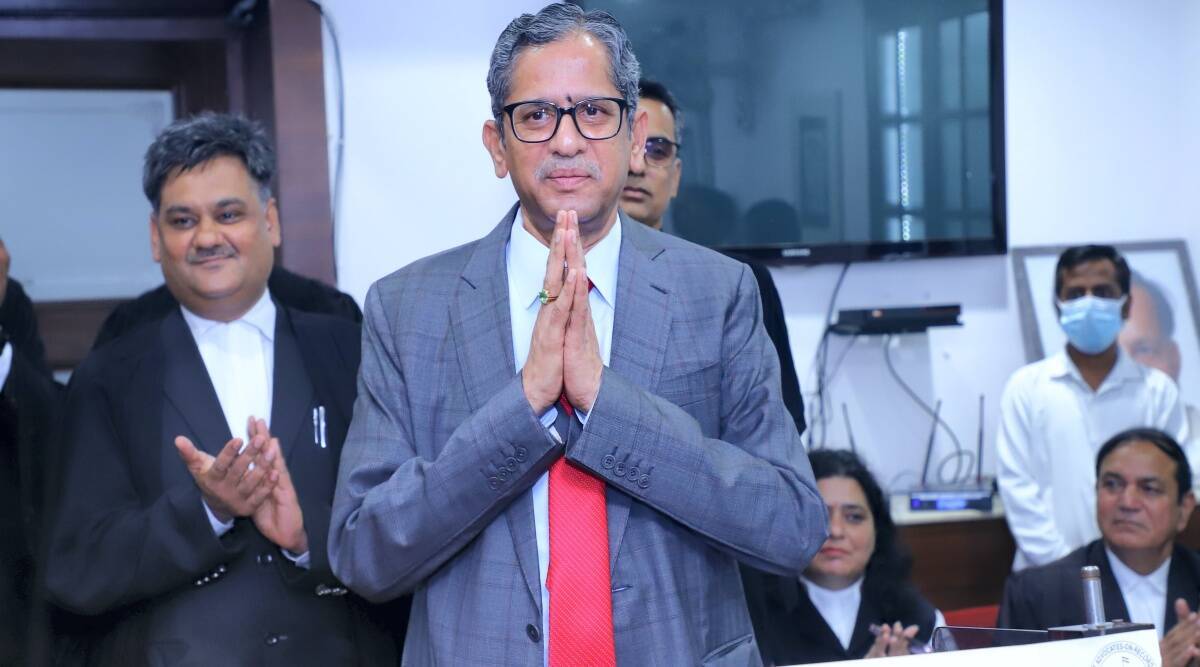The Supreme Court on Friday referred petitions seeking a ban on gifts distributed by political parties before elections to a three-judge bench, which it said in the apex court case in S Subramaniam Balaji v State of Tamil Nadu. Will pray for reconsideration of the 2013 judgment of the court.
The 2013 judgment held that such promises of gifts cannot be termed corrupt practices.
A bench headed by Chief Justice of India NV Ramana observed that some of the parties had submitted that “the logic in the above judgment is erroneous as it has not considered various provisions of the Representation of the People Act, 1951”.
“It was also submitted that the judge misinterpreted that the Directive Principles of State Policy could override the Fundamental Rights under Part III of the Constitution, which were decided by the Constitution Bench of this Court in the 1980 judgment at Minerva Mills. Ltd. v. Union of India, it said.
“Given the complexity of the issues involved, and pray for setting aside the judgment delivered by a two-judge Bench of this Court in S Subramaniam Balaji… Hon’ble Chief Justice of India,” the Bench, comprising Justices Hima Kohli and C T Ravikumar Also included.
Hearing a petition filed by Advocate Ashwini Upadhyay, who sought a ban on the promise of freebies by political parties in the run-up to elections, the court had initially mulled setting up a committee to go into the issue and make recommendations.
The bench said, “Initially, to initiate discussion about the issues highlighted, we thought that it may be appropriate to constitute an expert body to prepare a report or white paper which may suggest the way forward. ” Following this, there were applications for intervention by some parties, who argued that “not all promises can be combined with freebies as they pertain to welfare schemes or measures for the public”, it said.
The bench observed that “at the same time, the concern raised by the petitioners that under the guise of election promises, financial responsibility is being abated”.
Considering various arguments, it said in its Friday order, “Ultimately, it appears to us that a comprehensive hearing is required on the issues raised by the parties before passing any substantive order”.
The bench observed that “some preliminary issues may need to be discussed and decided in the present set of petitions… What is the scope of judicial intervention concerning the relief sought in the present batch of petitions? … Whether any enforceable order can be passed by this Court on these petitions?… Will the appointment of the Commission/Expert body by the Court serve any purpose in this matter?… Scope, composition and powers of the said Commission/Expert body What should happen?”
A two-judge bench in the Subramaniam Balaji case had held that “the state’s distribution in the form of distribution of colour TVs, laptops, etc. to deserving and deserving persons is directly related to the Directive Principles of State Policy” and warrants no intervention of the court.
In the 2006 Tamil Nadu Assembly elections, the DMK promised free colour TV sets to all households that did not have them if elected to power. DMK won the election and a provision of Rs 750 crore was made in the budget to implement the promise. In the 2011 assembly elections, the ruling DMK announced more freebies.
The opposition AIADMK-led coalition also announced free grinders, mixers, electric fans and laptop computers. AIADMK won the election and took steps to fulfill the promise. Subramaniam Balaji challenged these plans in court.
